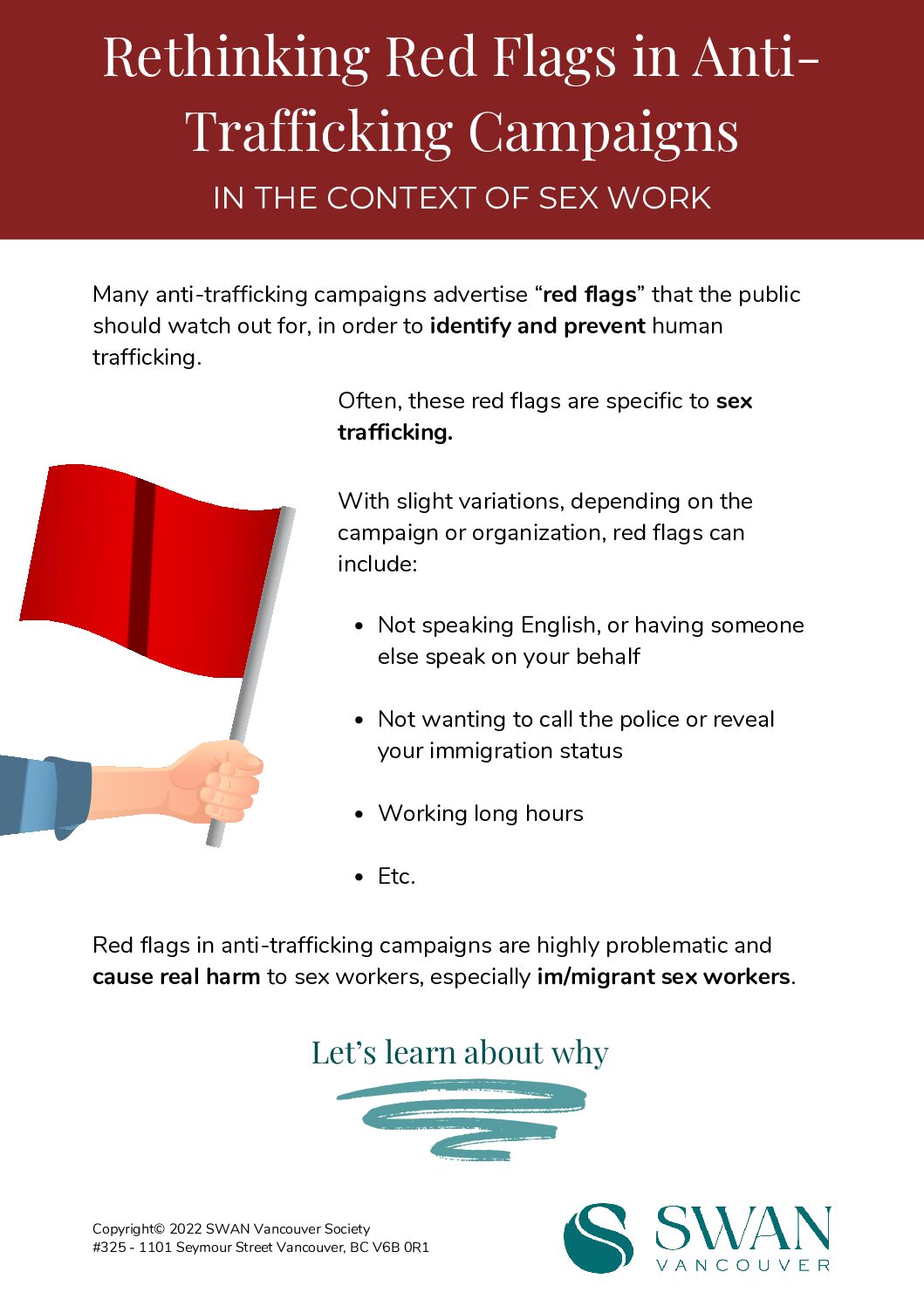Many mainstream anti-trafficking campaigns give a list of ‘red flags’ — signs of trafficking that you should watch out for in day-to-day life. Unfortunately, these red flags cause more problems than they solve.
Anti-trafficking campaigns tell us that being vigilant and reporting suspected red flags to law enforcement will prevent trafficking. However, most ‘red flags’ are just dressed-up stereotypes, are not evidence-based and actually cause harm to vulnerable groups such as im/migrant sex workers.
How can anti-trafficking ‘red flags’ promote harm?
Encouraging people to watch for “red flags of trafficking” can lead to:
- Hypervigilance — seeing trafficking around every corner
- Excessive surveillance, especially of marginalized groups
- Reinforcement of stereotypes
- Racial profiling of suspected victims and offenders
- Denial of agency
See our full resource for examples of anti-trafficking red flags alongside more nuanced explanations for the behaviour in question.
for the full list of resources

